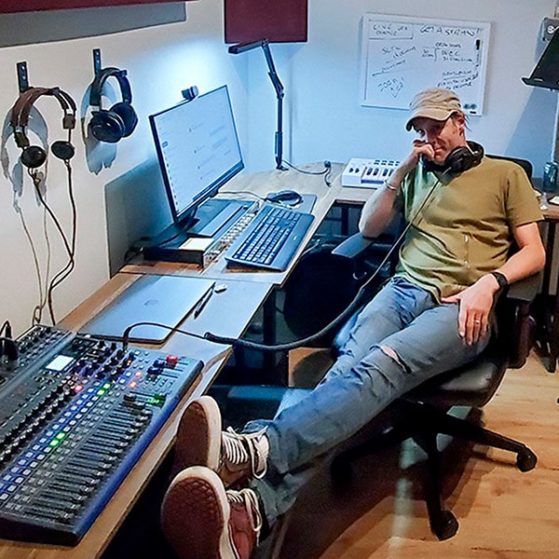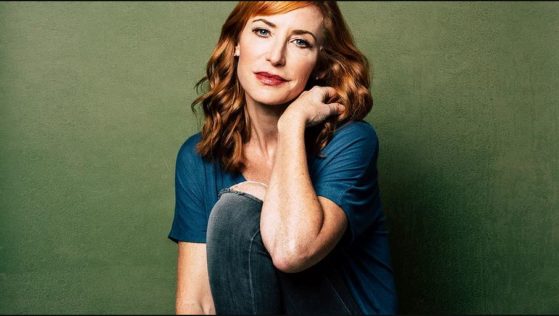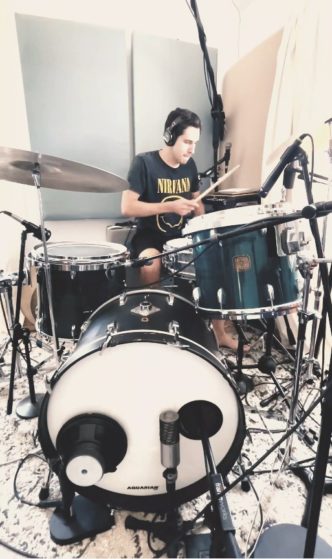As a part of the Audiobookworm tour for Time is a Fine White Lie, William sat down to answer some questions about his project.
ABW: Tell us about the process of turning your book into an audiobook.
WS: Soon after my e-book became available, my wife encouraged me to produce an audiobook version. She’s a frequent listener of the format, and insisted that I *not* read my own material. I began by looking for narrators on Voices.com and that’s how I discovered the talents of Aaron Goodson who voices the introduction, and Kathleen France who voices the story Orange Light.
I then reached out to my friend Greg Chun, a voice artist out in Los Angeles who has narrated several audiobooks and is also well-known for his character roles in various video games. He gave a brilliant read of my story The Transponder, and encouraged me to ‘go union’ with the project. After I did, Greg was able to loop in some of his friends who are also pros in the field. I coordinated with SAG/AFTRA, and soon had my roster filled with some of the best voices in the business. I find it difficult to put my gratitude into words.
ABW: How closely did you work with your narrators before and during the recording process? Did you give them any pronunciation tips or special insight into the characters?
WS: I set up each story as a Google Doc for my narrators, and left comments on the side to provide background info on the background of the characters and the vibe of the stories.
My favorite note was about the character Aditya from the shory story Bullets: Aditya here is the 2020 incarnation of the son of the Hindu goddess Aditi, who holds up the sky, sustains all existence and nourishes the earth. Aditya is cool, calm, and collected, and rejects the temporal satisfaction, sensory pleasures, and dizzying stimuli in the dive bar where the story takes place. He’s rewarded for his efforts by the literal, healthy nourishment he receives at the end of the story.
ABW: Were there any real life inspirations behind your writing?
WS: Many, many, many. Where do I begin? There’s only one work of pure fiction in the whole collection, and that’s the story Banged Up, which has its roots in social commentary more than anything else. All the other pieces are based on direct experiences.
Two of the stories start with factual scenarios, then drift into dreamlike worlds. Goodbye Cassiopeia begins with recounting the day I discovered my mother’s dead body, then floats into an abstract world of synchronicity and coincidence. The story 96% Match begins with the retelling of my first OK Cupid date with my now-wife, and later transmutes into an allegorical crime thriller dealing with bonding and relationships.
Then we’ve got a story like The Transponder, which offers some of the most far-fetched storylines in the book. Ironically, the surreal scenes here actually happened, albeit in my riddled mind during a bi-polar fugue state. Not to sell psychosis short by any means, though! The stories are steeped in archetypes and metaphor that would make C.G. Jung and Joseph Campbell proud.
ABW: Is there a particular part of this story that you feel is more resonating in the audiobook performance than in the book format?
WS: All of it! The ensemble cast brings out the anthology feel of the audiobook. In the written version, it can feel like there is one person telling all the stories. In the audiobook, because each story is voiced by a different actor, it feels like these are the stories of many different people, and I like that a lot.
ABW: If you had the power to time travel, would you use it? If yes, when and where would you go?
WS: While it takes discipline and practice to experience it, I think there’s no more interesting place than here and time than now.
I used to have a recurring daydream in which I’d fantasize about the amazing tastes, colors, and textures of foods that might exist on planets in other parts of the universe. A few years ago, after I began to cook for myself more often, I began to appreciate all those aspects of food right here in my neighborhood, and in my city- not to mention the rest of this planet we call home. All of these qualities that I’d never given myself a chance to fully experience before. I think in many ways, this daydream of other-worldly cuisine was a metaphor. I sensed the real world outside of me that I was disconnected from. Since I didn’t understand this on a conscious level, the closet my mind could get was a fantasy about another world. In reality, that world was this one, that I am thankfully more in touch with every day.
ABW: What do you say to those who view listening to audiobooks as “cheating” or as inferior to “real reading”?
WS: Absolutely not cheating. Reading a book and listening to an audiobook are two totally different experiences. The first audiobook I remember listening to was John Kennedy Toole’s Confederacy of Dunces, narrated by Barrett Whitener. Whitener did such a wonderful job voicing the diverse array of zany New Orleans characters that the experience became more like a movie than simply words on a page. The audiobook format makes it easy to consume great material when reading is impossible, such as during a long drive, or while taking a walk around the neighborhood. Not to mention the accessibility it lends to folks who are visually, or otherwise impaired.
ABW: Have any of your characters ever appeared in your dreams?
WS: I have vivid ‘recollections’ of a few scenes from the book. There must be something significant in the subtext for them to appear in my mind this way- almost in the same capacity a memory might: Dulce on the dock, Kurt in the field, the boy in the red convertible. Or perhaps is it these interactions really did take place… but in an alternate dimension?
ABW: What bits of advice would you give to aspiring authors?
WS: Write! Don’t concern yourself with external successes- they’re superficial and fleeting. I find the greatest reward is in the self-discovery the writing brings. And that old saying “Write what you know” sticks around for a reason. It’s the best advice ever. Even if you find your subjects to be pedestrian, you will invariably bring a perspective and framework to the content that only you can.
Another concept I’ve found helpful is the idea of the “shitty first draft”. Don’t let perfection be the enemy of the good! Write without worrying about content or structure. Get your ideas down any way you can, and deal with getting them into shape later.
ABW: Do you have any tips for authors going through the process of turning their books into audiobooks?
WS: Thanks to the internet, there are hundreds of tools at your disposal for putting together an audiobook. If you go through ACX (Amazon’s service), they’ll walk you through the whole process. If you go indie, you can easily find great readers- union and non-union alike- on Voices.com. As far as putting all the audio together, there are skilled engineers on fivrr.com you can hire at rates that won’t break the bank. Lastly, there’s great services like this one, which can help you find your audience through reviews on blogs and similar outlets.
ABW: What’s next for you?
WS: All of the stories in Time is a Fine White Lie were written on a kind of auto-pilot. I think my next book will be a little more purposeful, with general themes established before pen hits notebook. I want to combine my mental health experiences with my knowledge of myth, metaphor, and archetypes in a meaningful manner to shed light on peoples’ own journeys. I’d like to provide that bit of string to help folks out of their own particular mazes.
Jess The Audiobookworm is book blogger from North Carolina.[/vc_column_text][/vc_column][/vc_row]



